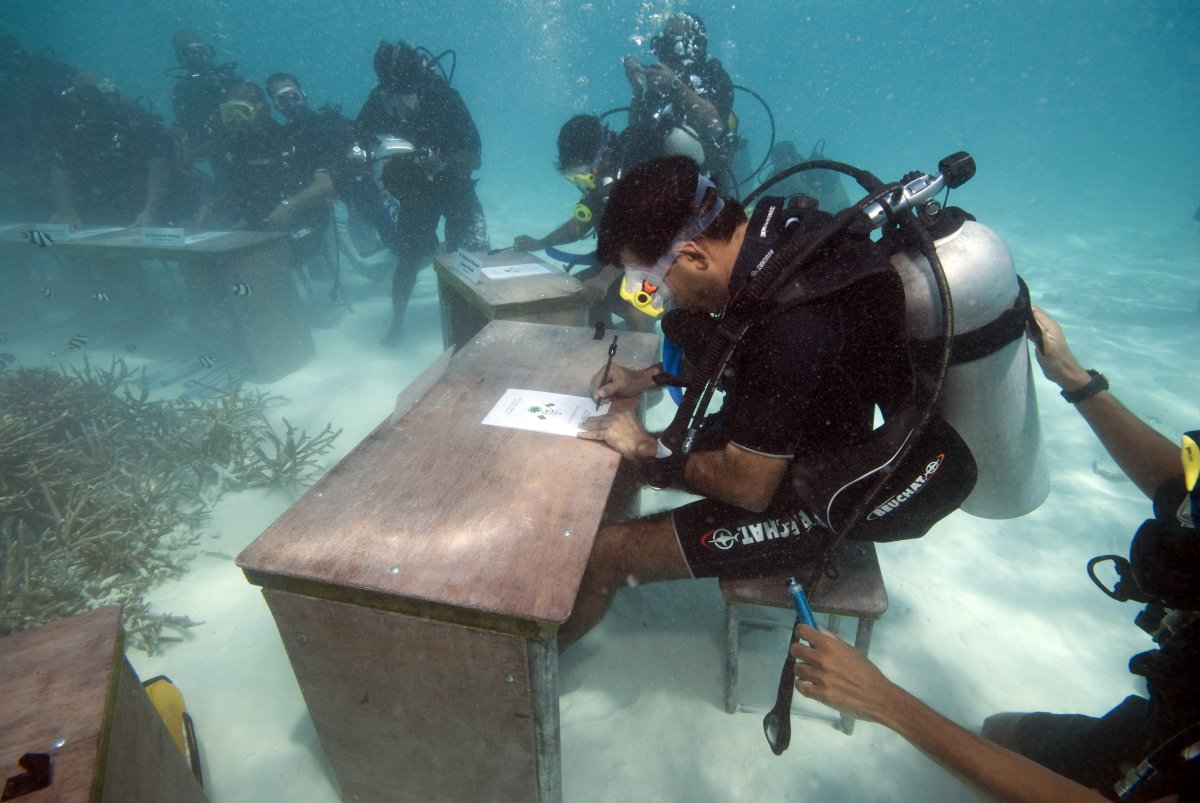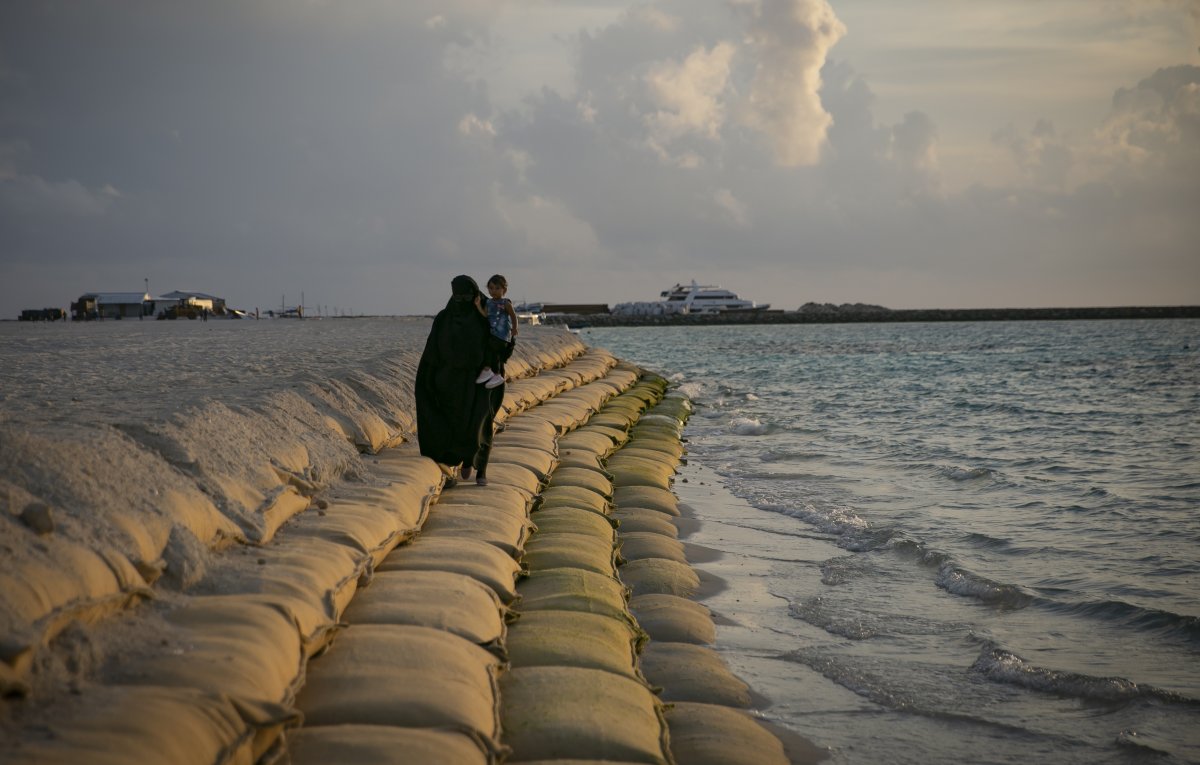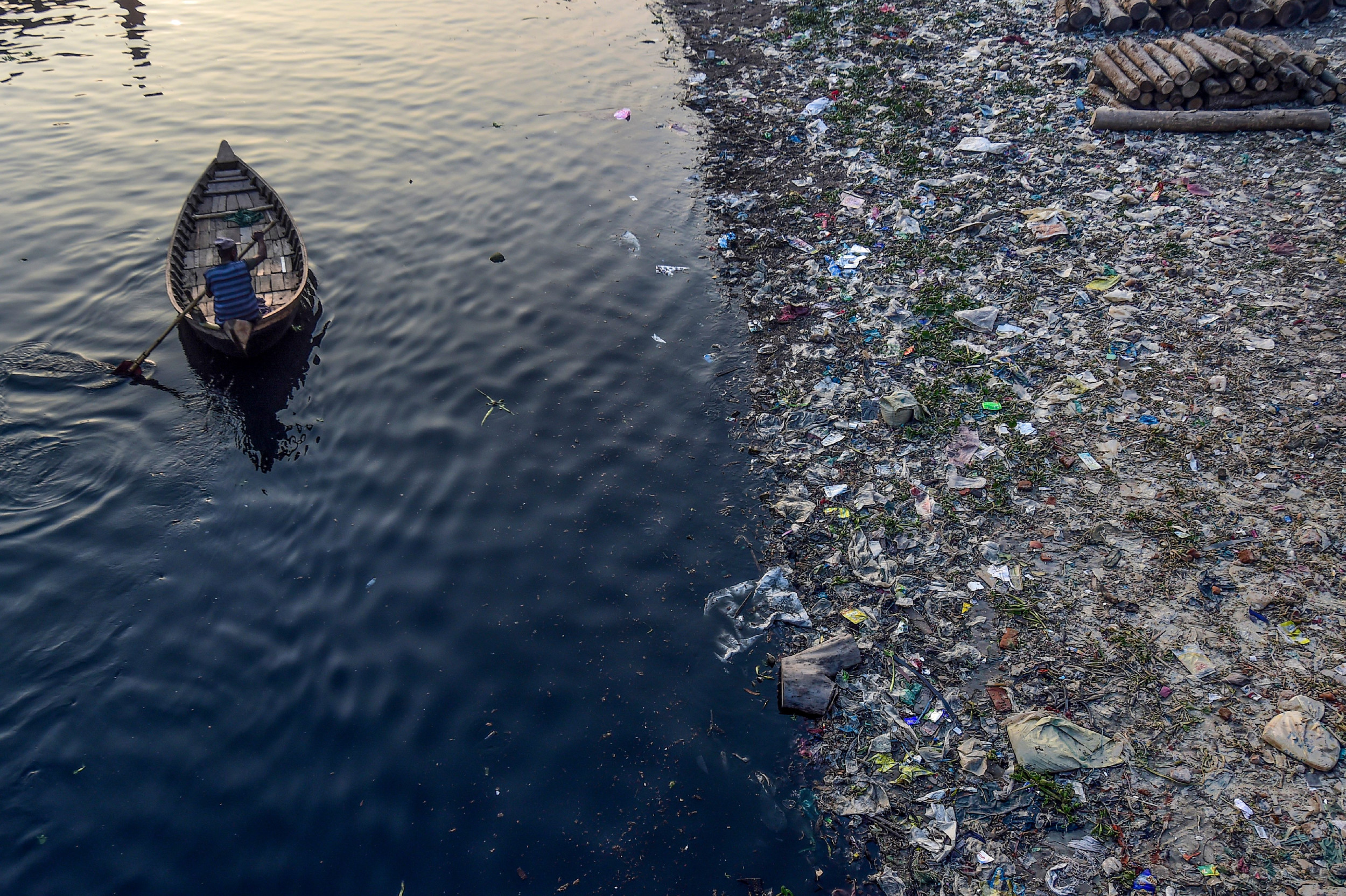As the Maldives contends with rising sea levels and strong storms, the island nation has no uncontaminated fresh water left, according to Aminath Shauna, the Maldives' minister for environment, climate change and technology.
Of the Maldives' 1,200 islands, 189 are inhabited by its population of 540,000, the Associated Press reported. The islands on average rise just about 3.3 feet above sea level, leaving them particularly vulnerable to rising waters.
"The difference between 1.5 degrees and 2 degrees, for us, really is a death sentence," Shauna said in an online interview with AP.
As Shauna anticipates the upcoming U.N. climate summit in Glasgow, Scotland, known as COP26, at the end of October, she voiced hopes for members of the international community to commit to swift action that will limit warming to 2.7 degrees Fahrenheit, or 1.5 degrees Celsius. If countries fail to do so, the Maldives and other small island nations could be in grave danger, she said.
"The question really is: What is not at stake? Our survival, our food, our income," Shauna said.
For more reporting from the Associated Press, see below.

Almost all countries signed the 2015 Paris climate accord, aimed at limiting global warming to 2 degrees Celsius (3.6 degrees Fahrenheit) above levels in the late 19th century, and ideally no more than 1.5 C (2.7 F). But the world already has warmed nearly 1.1 C (2 F), scientists said.
A report from the Intergovernmental Panel on Climate Change said earlier this year that the world is likely to exceed the 1.5 C increase in the 2030s, earlier than expected.
Shauna said rich nations need to fulfil their Paris promise to spend $100 billion annually to help poorer nations cope with the impact of climate change and switch to cleaner energy.
So far, the Green Climate Fund, a key instrument for climate finance, has approved only one adaptation project in the Maldives, and even that took three years, she said. With climate change impacting the islands rapidly, by the time funds are approved, the situation on the ground has already changed, she said.
The Maldives spends 50 percent of its national budget on efforts to adapt to the worst impacts of climate change, such as sea walls to protect coral reefs. But the coronavirus pandemic has decimated its tourism industry and shrunk its economy by a third, Shauna said.
"The finance has not reached the Maldives and small island states," she said, adding that the process for rich countries to declare that they have released funds needs to be more transparent.
Shauna added that countries should also be given more time to repay. Because climate change didn't happen in 10 years, the developed world and financial systems shouldn't expect that the money should be repaid in a short time, she said.
"We really need to unlock the financial system," she said.
Shauna said she couldn't measure the cost of failure in numbers. "We're talking about losing a culture, our way of life and livelihoods. And you can't value these in dollars," she said.
She said the impacts of climate change—heavy rainfall, flooding, coastal erosion, inadequate drinkable water and the need to completely alter lives and livelihoods—have already become part of the norm.
The Maldives has no alternative but to be optimistic and hope the world will come together and take action, Shauna said.
"Maldivians deserve to live," she said.

Uncommon Knowledge
Newsweek is committed to challenging conventional wisdom and finding connections in the search for common ground.
Newsweek is committed to challenging conventional wisdom and finding connections in the search for common ground.
About the writer
Zoe Strozewski is a Newsweek reporter based in New Jersey. Her focus is reporting on U.S. and global politics. Zoe ... Read more
To read how Newsweek uses AI as a newsroom tool, Click here.








